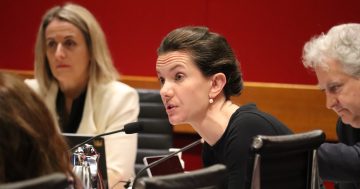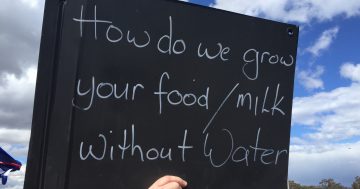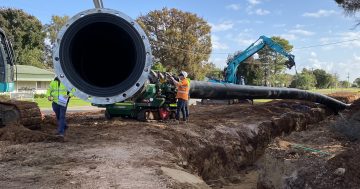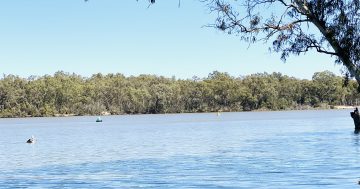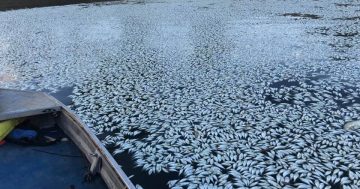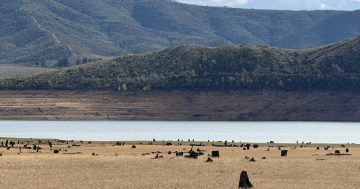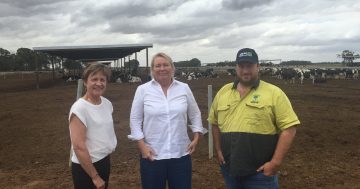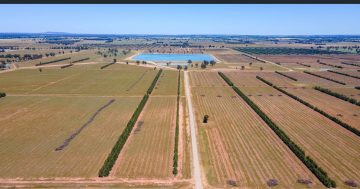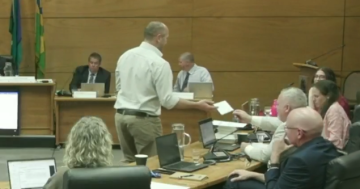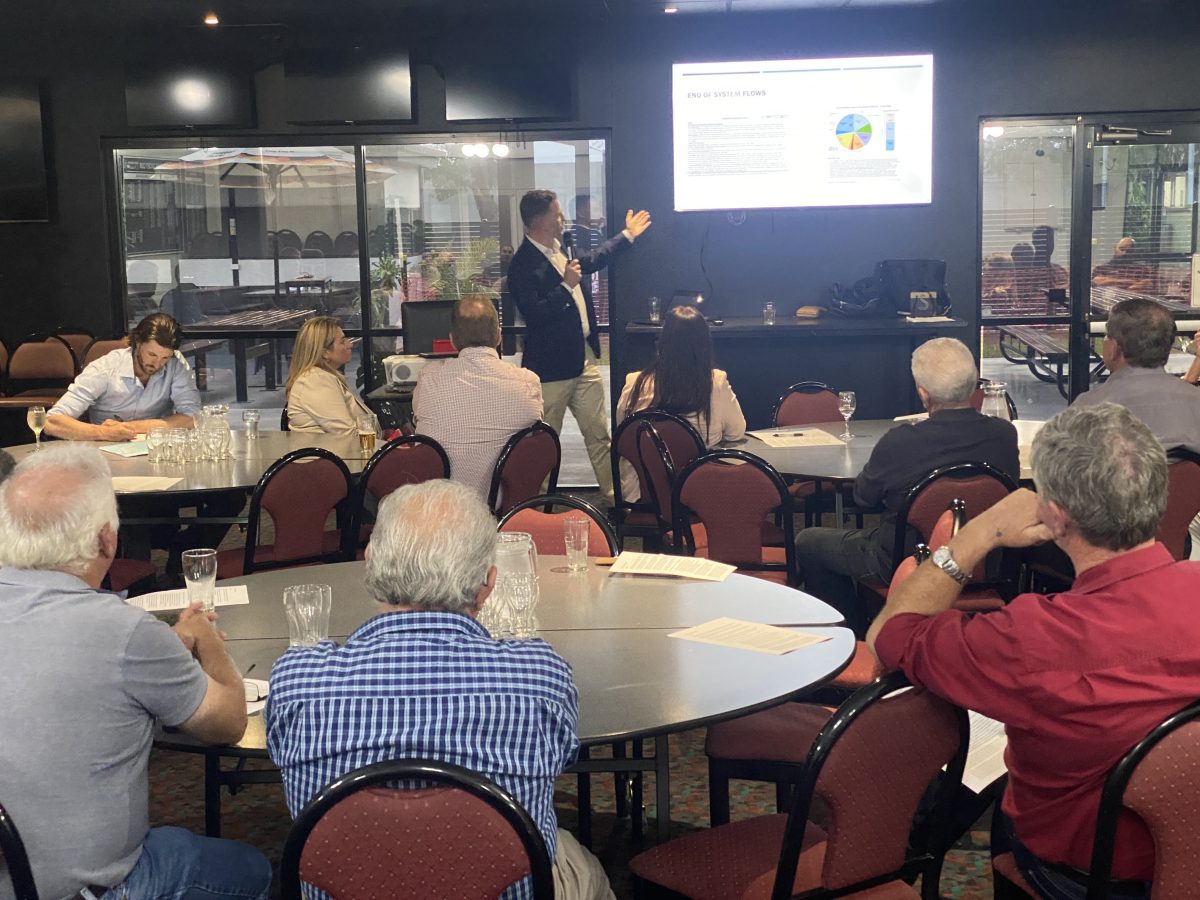
Tim Horne explains his case on so-called voluntary contributions. Photo: Oliver Jacques.
Water theft has been in the news lately, with regulators vowing to catch irrigators who illegally extract water and punish them.
But where do irrigators go when their water is taken away from them by government?
On Thursday 6 April, a group of Riverina farmers met at Griffith’s Coro Club and vowed to continue their decade-long fight against the NSW Government, who they say unjustly took a large volume of their productive water “by stealth”.
In 2002, Murray and Murrumbidgee River irrigators apparently agreed to volunteer a percentage of their water entitlements to the state government for environmental purposes. This was on the proviso that the contribution would be reviewed every five years. In two other NSW valleys which faced a similar situation, their water take was reviewed and returned – but not in the Murray and Murrumbidgee.
Despite being required to by law, the NSW Government has not conducted a single review into water management within the state. Nor has it provided any evidence of the benefits of this water to the environment.
“I didn’t volunteer to give my water away. They didn’t compensate us for it, they’ve taken it by stealth using dodgy, outdated rules and skullduggery,” Murrami rice farmer Debbie Buller said.
Mrs Buller and citrus farmer Jo Brighenti have converted themselves into amateur detectives to find out how and why decisions were made, to build a case for getting their water back. Each year, they are reminded of the loss through water charges and delivery entitlement fees for water they no longer receive.
Mrs Brighenti said: “The losses are supposedly socialised but when we look at irrigators’ allocations, fees and charges that is clearly not the case.”
In 2019, they recruited Finley-raised water law expert Tim Horne to lead their battle. On Thursday, he gave a progress update presentation to around 50 irrigators, many of whom have donated money to fuel the fight.
“The consequence of these inflexible rules is not necessarily benefiting the environment, it’s a drag on productivity and the lost opportunity cost to the Murrumbidgee Valley alone is conservatively estimated to be $7.416 billion in the past two decades,” Mr Horne said.

Tim Horne says this about the future of the nation. Photo: Oliver Jacques.
He sees this mismanagement as having grave consequences for the entire nation.
“In 1996, when the reductions to water diversions began, we had less than 16 million people. Now it’s 26 million and expected to rise to 36 million in the short term. In the interim the amount of water available for the productive sector has dropped significantly. Effectively, the valley will need to produce twice as much food with half the water … farmers are leaving the industry; this creates a huge problem looking ahead.”
In 2018, the average age of a farmer in NSW was 58 years and rising. Mr Horne said there was a real sense of urgency now by those remaining to leave their successors with an opportunity to succeed.
“Without timely access to our water, everything dies – including dreams and aspirations.”
READ ALSO: Claims controversial water buyback are ‘taking advantage of people’s misfortune’
Through freedom of information requests made via NSW Parliament, the trio have gained access to dozens of boxes of secret documents that chronicled two decades of decision-making processes. Their painstaking research has yielded some gold.
“We found a 2006 note from one government staff member saying, ‘not much point just going for a small increase [in water to be taken from farmers], the government won’t have to deal with this for 20/50 years’ … this bureaucrat is now engaged by the department to be an independent reviewer of its processes around water management. This shows a lot of work is left to be done,” Mr Horne said.
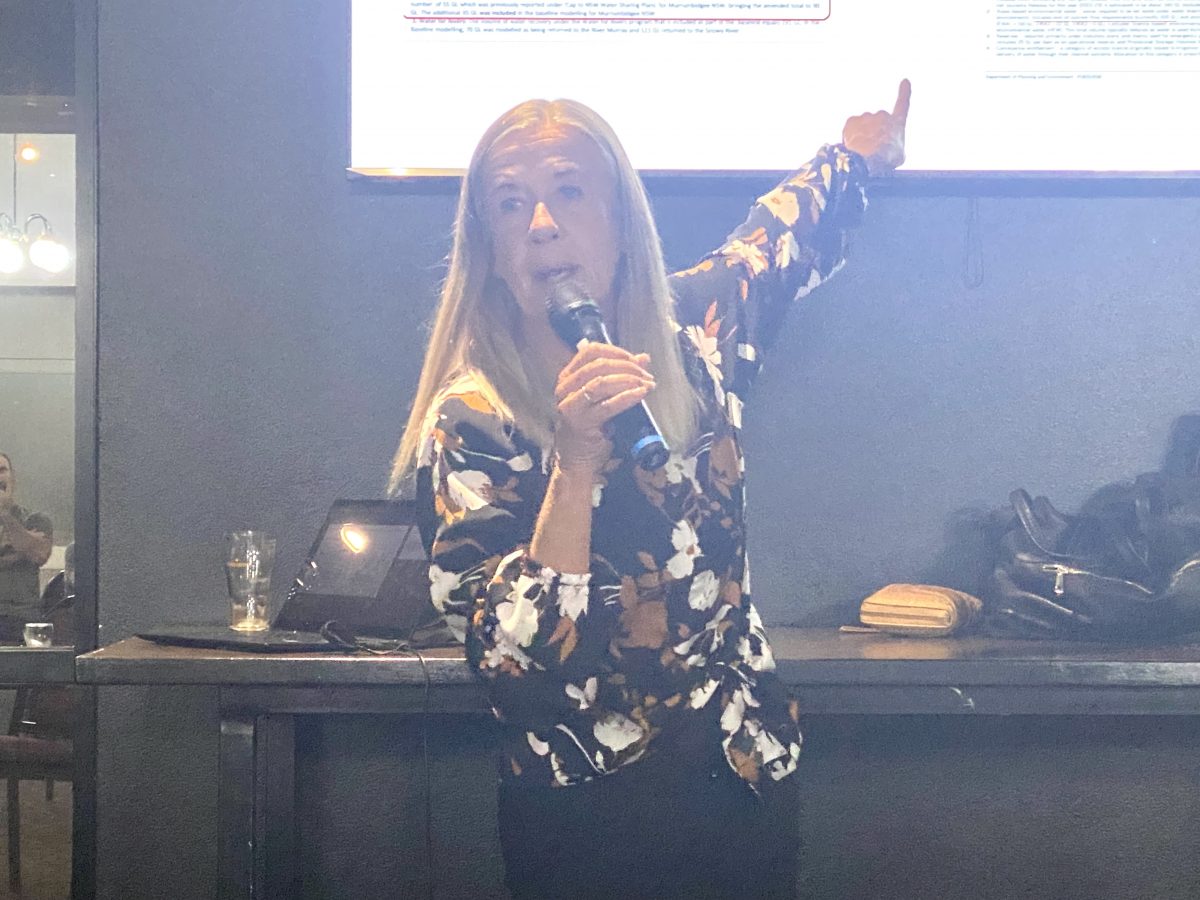
Debbie Buller presents her case. Photo: Oliver Jacques.
The Sydney-based lawyer has proposed a series of rule changes to give farmers access to water in a way that benefits producers, consumers and the environment. He intends to present his ideas to the new Water Minister Rose Jackson in the coming weeks.
“We are not asking to take anything more than what they have determined to be environmentally sustainable – we just want to make sure we are maximising all of the water available to the productive sector to put cost-efficient food on all of the tables around this great nation,” Mrs Buller said.
“Along with other organisations, our research has found that there is a significant ‘underuse’ occurring in the Murrumbidgee Valley, over 3,000,000ML in the last decade.
“We don’t appear to have a water shortage problem, we instead have a serious water accounting problem. The state is losing billions of dollars and is putting food security in jeopardy.”








